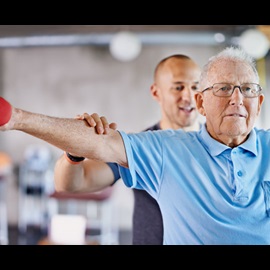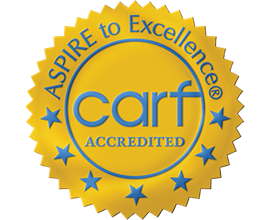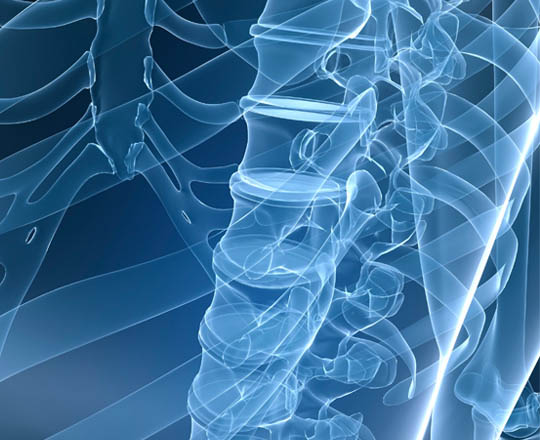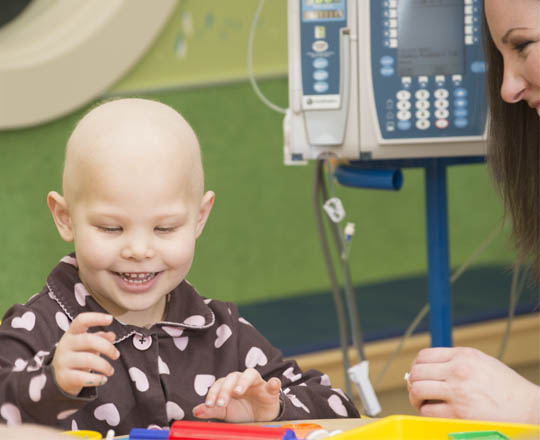
When you’re a patient at St. Luke’s Rehabilitation, you’ll receive care from many types of providers, each with different expertise, all working together on one care team. Your team will meet regularly in order to provide you with care that’s appropriate for your immediate and ongoing needs. We’ll involve your family and loved ones every step of the way. We want to ensure that you and everyone involved in your care feels confident and supported when you leave the hospital.
Our goal is to get you back home, living your best life. After an injury or event like a stroke, living your best life may seem difficult to imagine. We understand that uncertainty, and we will provide you and your loved ones the support you need for your recovery.
Research shows that recovery is optimized when rehabilitation care is located close to home. Having your loved ones nearby and feeling comfortable in your environment helps the healing process. To learn more about the exceptional care offered at St. Luke's Rehabilitation Hospital, view our patient outcomes data.
-
Location & Contact Info
-
Before Your Visit
-
For Current Patients
Specialties
-

Orthopedic Rehabilitation
Maximizing your body’s ability to move freely and without pain, after surgery or injury. -
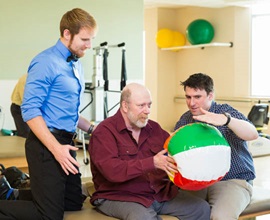
Neurologic Rehabilitation
Comprehensive care for patients with a neurologic disease or disorder, or after stroke, brain injury, or spinal cord injury.
Areas of Expertise in Inpatient Recovery
-
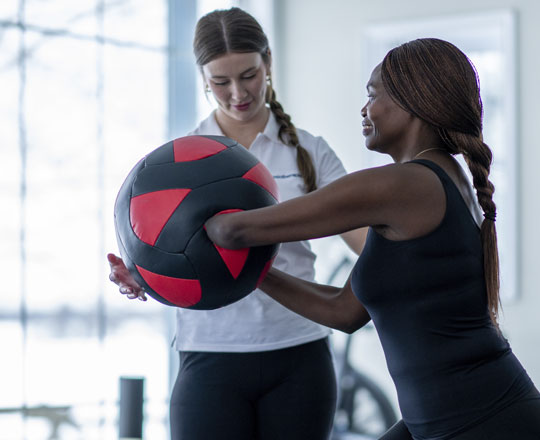
Amputation
After an amputation, you will need support in health recovery, as well as restoration of functional abilities. We'll help you regain strength and manage both the emotional and physical aspects of your care. This includes consideration of a prosthetic, if applicable.
-
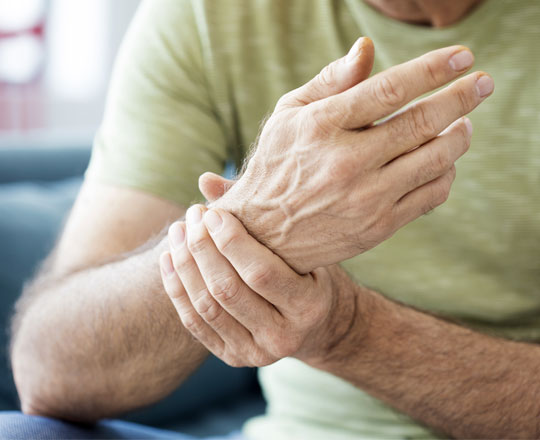
Guillain-Barré Syndrome
During recovery from Guillain-Barré Syndrome, you may experience weakness in your arms and legs that impairs your movement. Inpatient rehabilitation has been shown to have a significant positive impact on restoring a patient's function.
-

Spinal Cord Injury
Following a spinal cord injury, your robust interdisciplinary team will support you as you restore strength and adapt techniques to resume skills for independence. They will also provide pertinent education to you and your care partners and address any equipment needs you may have.
-
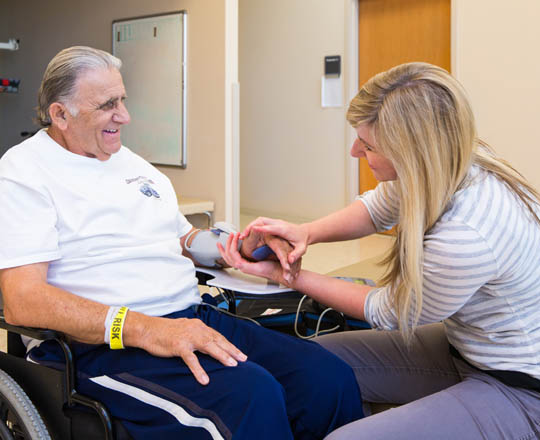
Stroke
Our goal is to help you regain what you’ve lost after a stroke. You’ll receive care from experts in movement, cognition and speech recovery. You’ll also exercise, engage in conversation and memory activities, and practice life skills.
-
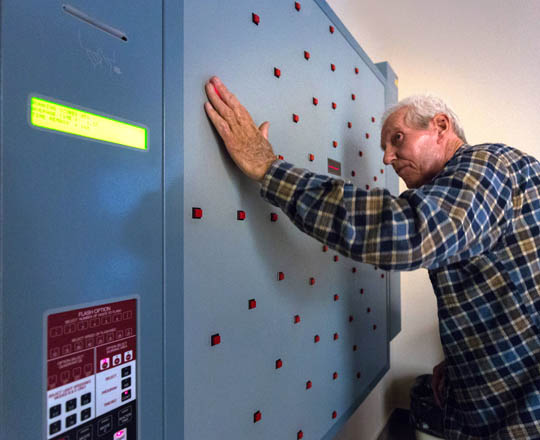
Traumatic Brain Injury (TBI)
To support your best function and quality of life after TBI, your team will be led by a rehabilitation medicine physician and supported by specialists in nutrition; social work; neuropsychology; and physical, speech, occupational and recreational therapy.
Conditions
-
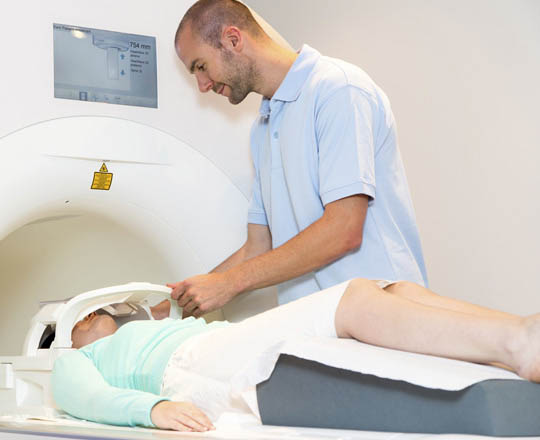
Mild Traumatic Brain Injury
A forceful head motion or impact causing a brief change in mental status with lingering side effects.
-

Multiple Sclerosis
A condition affecting the brain and spinal cord that impacts muscle control and strength, vision, balance, and more.
-
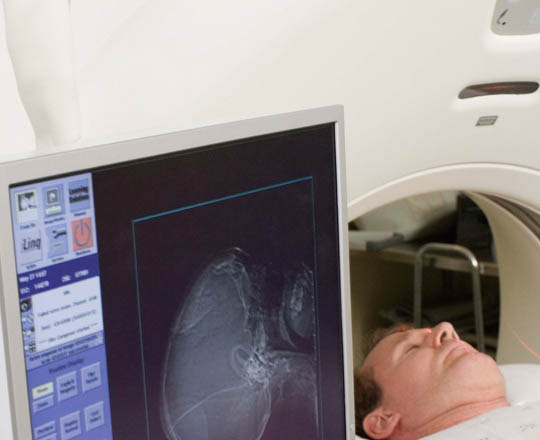
Traumatic Brain Injury
A forceful head motion or impact causing a change in mental status.
-
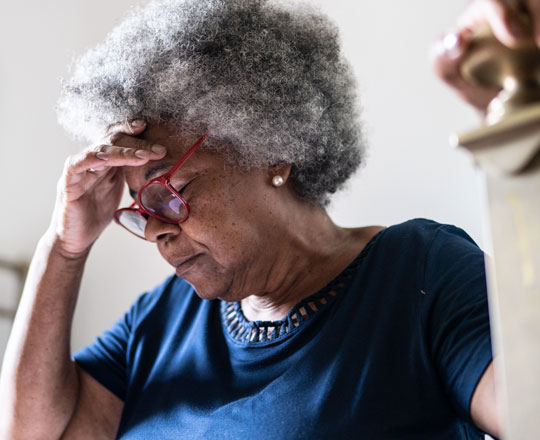
Stroke
Stroke occurs when a blood vessel in the brain is blocked or bursts. Brain damage can begin within minutes, so act quickly.
What is CARF Accreditation?
Why It Matters
Our comprehensive inpatient programs in the Treasure Valley and Magic Valley are accredited by the Commission on Accreditation of Rehabilitation Facilities (CARF). St. Luke's Outpatient Brain Injury programs in Boise and Meridian are also CARF accredited. This means these programs are striving to meet the highest standards of care nationally.
In order to maintain our CARF accreditation, we must regularly share our patient outcomes as they compare to national benchmarks.
Articles & Resources
-
showing 4 of 4
-

Blog Post
St. Luke’s Rehabilitation Hospital reimagined and expanded to help meet changing community needs for patient care
Read More -

Video
George and Hernan's Story
George and Hernan became friends after Hernan was paralyzed in an accident. They've worked to bring wheelchairs to those in need.
Read More -

Article
Spinal Cord Injury: Adapting Your Home
Read More -

Article
Stroke Rehabilitation
Read More

